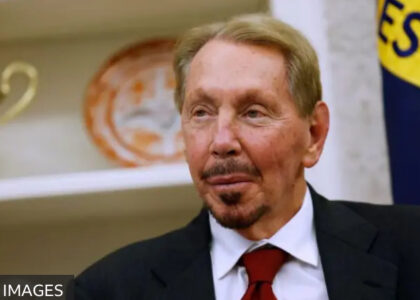The government argues that the surcharge is crucial for sustaining improvements already visible on major highways.
Nigerians have been urged to disregard claims that the recently announced 5% fuel surcharge is a new tax burden, with government officials stressing that the measure is an infrastructure fund aimed at improving the nation’s roads and transport systems.
Arabinrin Aderonke Atoyebi, a technical assistant on broadcast media to the Executive Chairman of the Federal Inland Revenue Service (FIRS), explained in a detailed statement that misinformation on social media has created unnecessary fears among citizens.
“A fuel surcharge is a small extra charge on fuel, meant for a specific purpose. In this case, it is for our roads and transport infrastructure.
“It is not a tax the government can use however it likes, and it is definitely not about immediately taking more from us at petrol stations,” Atoyebi clarified.
Not a New Tax, But an Existing Law.
According to Atoyebi, the surcharge is not a new introduction under the 2025 Tax Act but has existed since 2007 under the Federal Roads Maintenance Agency (FERMA) Act.
The recent update, she explained, only “modernises the framework, makes it clearer, and ensures transparency” in how the funds are channelled.
She emphasised that the implementation of the surcharge will not be automatic in January 2026, as widely speculated.
Instead, the Finance Minister must issue an official directive and publish it in the Federal Government Gazette before the measure takes effect.
Atoyebi reassured households that rely on kerosene, LPG, CNG, or renewable energy that they will not be impacted by the policy.
The government argues that the surcharge is crucial for sustaining improvements already visible on major highways.
Citing road upgrades such as the Lagos-Ibadan Expressway, Abuja-Kaduna Road, and parts of the Enugu-Onitsha route, Atoyebi stated that the dedicated fund would ensure long-term maintenance and expansion to other states.
“With the 5% fuel surcharge, the government can continue this progress and expand it to more states. Cars will last longer, goods will move faster, and our daily journeys to work, school, or market will be much easier,” she said.
Addressing suggestions that savings from fuel subsidy removal should be sufficient for road repairs, Atoyebi argued that subsidy funds are already spread across education, healthcare, and security.
The surcharge, she maintained, ensures transport infrastructure has a steady pool of resources without competing with other urgent priorities.
“Having this surcharge means transport infrastructure all over Nigeria has its own dedicated money, so it doesn’t have to compete with other pressing needs,” she noted.
The clarification comes amid growing debates on rising costs and government revenue measures.
While scepticism remains among sections of the public, Atoyebi insisted that the surcharge should be viewed as a practical investment in safety, economic growth, and long-term cost savings for Nigerians.
“It’s a small step today that promises a big difference for Nigerians tomorrow,” she concluded.The government argues that the surcharge is crucial for sustaining improvements already visible on major highways.
Nigerians have been urged to disregard claims that the recently announced 5% fuel surcharge is a new tax burden, with government officials stressing that the measure is an infrastructure fund aimed at improving the nation’s roads and transport systems.
Arabinrin Aderonke Atoyebi, a technical assistant on broadcast media to the Executive Chairman of the Federal Inland Revenue Service (FIRS), explained in a detailed statement that misinformation on social media has created unnecessary fears among citizens.
“A fuel surcharge is a small extra charge on fuel, meant for a specific purpose. In this case, it is for our roads and transport infrastructure.
“It is not a tax the government can use however it likes, and it is definitely not about immediately taking more from us at petrol stations,” Atoyebi clarified.
Not a New Tax, But an Existing Law.
According to Atoyebi, the surcharge is not a new introduction under the 2025 Tax Act but has existed since 2007 under the Federal Roads Maintenance Agency (FERMA) Act.
The recent update, she explained, only “modernises the framework, makes it clearer, and ensures transparency” in how the funds are channelled.
She emphasised that the implementation of the surcharge will not be automatic in January 2026, as widely speculated.
Instead, the Finance Minister must issue an official directive and publish it in the Federal Government Gazette before the measure takes effect.
Atoyebi reassured households that rely on kerosene, LPG, CNG, or renewable energy that they will not be impacted by the policy.
The government argues that the surcharge is crucial for sustaining improvements already visible on major highways.
Citing road upgrades such as the Lagos-Ibadan Expressway, Abuja-Kaduna Road, and parts of the Enugu-Onitsha route, Atoyebi stated that the dedicated fund would ensure long-term maintenance and expansion to other states.
“With the 5% fuel surcharge, the government can continue this progress and expand it to more states. Cars will last longer, goods will move faster, and our daily journeys to work, school, or market will be much easier,” she said.
Addressing suggestions that savings from fuel subsidy removal should be sufficient for road repairs, Atoyebi argued that subsidy funds are already spread across education, healthcare, and security.
The surcharge, she maintained, ensures transport infrastructure has a steady pool of resources without competing with other urgent priorities.
“Having this surcharge means transport infrastructure all over Nigeria has its own dedicated money, so it doesn’t have to compete with other pressing needs,” she noted.
The clarification comes amid growing debates on rising costs and government revenue measures.
While scepticism remains among sections of the public, Atoyebi insisted that the surcharge should be viewed as a practical investment in safety, economic growth, and long-term cost savings for Nigerians.
“It’s a small step today that promises a big difference for Nigerians tomorrow,” she concluded.The government argues that the surcharge is crucial for sustaining improvements already visible on major highways.
Nigerians have been urged to disregard claims that the recently announced 5% fuel surcharge is a new tax burden, with government officials stressing that the measure is an infrastructure fund aimed at improving the nation’s roads and transport systems.
Arabinrin Aderonke Atoyebi, a technical assistant on broadcast media to the Executive Chairman of the Federal Inland Revenue Service (FIRS), explained in a detailed statement that misinformation on social media has created unnecessary fears among citizens.
“A fuel surcharge is a small extra charge on fuel, meant for a specific purpose. In this case, it is for our roads and transport infrastructure.
“It is not a tax the government can use however it likes, and it is definitely not about immediately taking more from us at petrol stations,” Atoyebi clarified.
Not a New Tax, But an Existing Law.
According to Atoyebi, the surcharge is not a new introduction under the 2025 Tax Act but has existed since 2007 under the Federal Roads Maintenance Agency (FERMA) Act.
The recent update, she explained, only “modernises the framework, makes it clearer, and ensures transparency” in how the funds are channelled.
She emphasised that the implementation of the surcharge will not be automatic in January 2026, as widely speculated.
Instead, the Finance Minister must issue an official directive and publish it in the Federal Government Gazette before the measure takes effect.
Atoyebi reassured households that rely on kerosene, LPG, CNG, or renewable energy that they will not be impacted by the policy.
The government argues that the surcharge is crucial for sustaining improvements already visible on major highways.
Citing road upgrades such as the Lagos-Ibadan Expressway, Abuja-Kaduna Road, and parts of the Enugu-Onitsha route, Atoyebi stated that the dedicated fund would ensure long-term maintenance and expansion to other states.
“With the 5% fuel surcharge, the government can continue this progress and expand it to more states. Cars will last longer, goods will move faster, and our daily journeys to work, school, or market will be much easier,” she said.
Addressing suggestions that savings from fuel subsidy removal should be sufficient for road repairs, Atoyebi argued that subsidy funds are already spread across education, healthcare, and security.
The surcharge, she maintained, ensures transport infrastructure has a steady pool of resources without competing with other urgent priorities.
“Having this surcharge means transport infrastructure all over Nigeria has its own dedicated money, so it doesn’t have to compete with other pressing needs,” she noted.
The clarification comes amid growing debates on rising costs and government revenue measures.
While scepticism remains among sections of the public, Atoyebi insisted that the surcharge should be viewed as a practical investment in safety, economic growth, and long-term cost savings for Nigerians.
“It’s a small step today that promises a big difference for Nigerians tomorrow,” she concluded.The government argues that the surcharge is crucial for sustaining improvements already visible on major highways.
Nigerians have been urged to disregard claims that the recently announced 5% fuel surcharge is a new tax burden, with government officials stressing that the measure is an infrastructure fund aimed at improving the nation’s roads and transport systems.
Arabinrin Aderonke Atoyebi, a technical assistant on broadcast media to the Executive Chairman of the Federal Inland Revenue Service (FIRS), explained in a detailed statement that misinformation on social media has created unnecessary fears among citizens.
“A fuel surcharge is a small extra charge on fuel, meant for a specific purpose. In this case, it is for our roads and transport infrastructure.
“It is not a tax the government can use however it likes, and it is definitely not about immediately taking more from us at petrol stations,” Atoyebi clarified.
Not a New Tax, But an Existing Law.
According to Atoyebi, the surcharge is not a new introduction under the 2025 Tax Act but has existed since 2007 under the Federal Roads Maintenance Agency (FERMA) Act.
The recent update, she explained, only “modernises the framework, makes it clearer, and ensures transparency” in how the funds are channelled.
She emphasised that the implementation of the surcharge will not be automatic in January 2026, as widely speculated.
Instead, the Finance Minister must issue an official directive and publish it in the Federal Government Gazette before the measure takes effect.
Atoyebi reassured households that rely on kerosene, LPG, CNG, or renewable energy that they will not be impacted by the policy.
The government argues that the surcharge is crucial for sustaining improvements already visible on major highways.
Citing road upgrades such as the Lagos-Ibadan Expressway, Abuja-Kaduna Road, and parts of the Enugu-Onitsha route, Atoyebi stated that the dedicated fund would ensure long-term maintenance and expansion to other states.
“With the 5% fuel surcharge, the government can continue this progress and expand it to more states. Cars will last longer, goods will move faster, and our daily journeys to work, school, or market will be much easier,” she said.
Addressing suggestions that savings from fuel subsidy removal should be sufficient for road repairs, Atoyebi argued that subsidy funds are already spread across education, healthcare, and security.
The surcharge, she maintained, ensures transport infrastructure has a steady pool of resources without competing with other urgent priorities.
“Having this surcharge means transport infrastructure all over Nigeria has its own dedicated money, so it doesn’t have to compete with other pressing needs,” she noted.
The clarification comes amid growing debates on rising costs and government revenue measures.
While scepticism remains among sections of the public, Atoyebi insisted that the surcharge should be viewed as a practical investment in safety, economic growth, and long-term cost savings for Nigerians.
“It’s a small step today that promises a big difference for Nigerians tomorrow,” she concluded.The government argues that the surcharge is crucial for sustaining improvements already visible on major highways.
Nigerians have been urged to disregard claims that the recently announced 5% fuel surcharge is a new tax burden, with government officials stressing that the measure is an infrastructure fund aimed at improving the nation’s roads and transport systems.
Arabinrin Aderonke Atoyebi, a technical assistant on broadcast media to the Executive Chairman of the Federal Inland Revenue Service (FIRS), explained in a detailed statement that misinformation on social media has created unnecessary fears among citizens.
“A fuel surcharge is a small extra charge on fuel, meant for a specific purpose. In this case, it is for our roads and transport infrastructure.
“It is not a tax the government can use however it likes, and it is definitely not about immediately taking more from us at petrol stations,” Atoyebi clarified.
Not a New Tax, But an Existing Law.
According to Atoyebi, the surcharge is not a new introduction under the 2025 Tax Act but has existed since 2007 under the Federal Roads Maintenance Agency (FERMA) Act.
The recent update, she explained, only “modernises the framework, makes it clearer, and ensures transparency” in how the funds are channelled.
She emphasised that the implementation of the surcharge will not be automatic in January 2026, as widely speculated.
Instead, the Finance Minister must issue an official directive and publish it in the Federal Government Gazette before the measure takes effect.
Atoyebi reassured households that rely on kerosene, LPG, CNG, or renewable energy that they will not be impacted by the policy.
The government argues that the surcharge is crucial for sustaining improvements already visible on major highways.
Citing road upgrades such as the Lagos-Ibadan Expressway, Abuja-Kaduna Road, and parts of the Enugu-Onitsha route, Atoyebi stated that the dedicated fund would ensure long-term maintenance and expansion to other states.
“With the 5% fuel surcharge, the government can continue this progress and expand it to more states. Cars will last longer, goods will move faster, and our daily journeys to work, school, or market will be much easier,” she said.
Addressing suggestions that savings from fuel subsidy removal should be sufficient for road repairs, Atoyebi argued that subsidy funds are already spread across education, healthcare, and security.
The surcharge, she maintained, ensures transport infrastructure has a steady pool of resources without competing with other urgent priorities.
“Having this surcharge means transport infrastructure all over Nigeria has its own dedicated money, so it doesn’t have to compete with other pressing needs,” she noted.
The clarification comes amid growing debates on rising costs and government revenue measures.
While scepticism remains among sections of the public, Atoyebi insisted that the surcharge should be viewed as a practical investment in safety, economic growth, and long-term cost savings for Nigerians.
“It’s a small step today that promises a big difference for Nigerians tomorrow,” she concluded.






